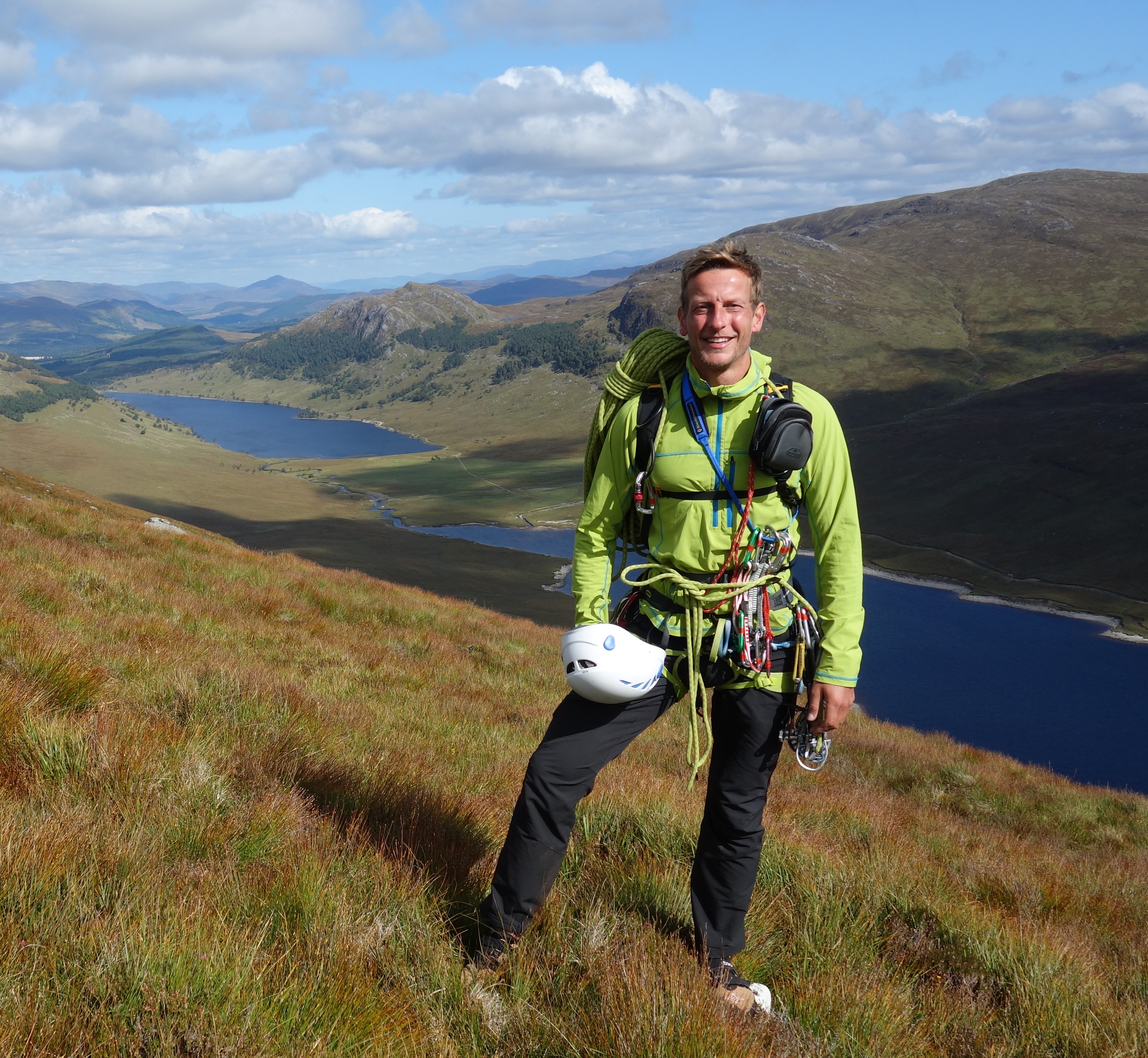How to use bear spray: our easy-to-follow guide to storing, carrying, and using this vital hiking safety tool
The knowledge of how to use bear spray will give you the best chance of avoiding an unpleasant encounter with an unfriendly ursine unscathed
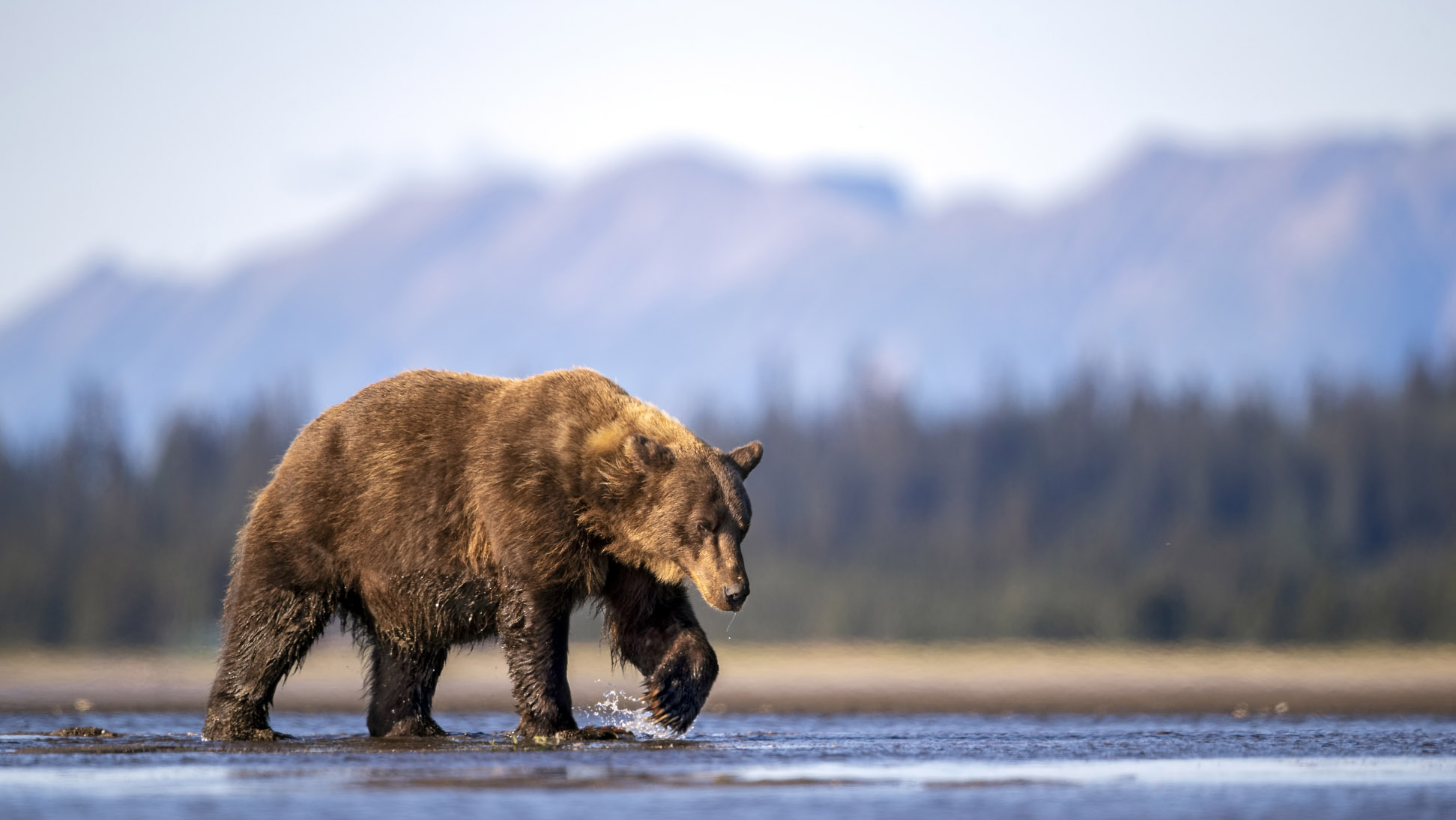
All the latest inspiration, tips and guides to help you plan your next Advnture!
You are now subscribed
Your newsletter sign-up was successful
Knowing how to use bear spray effectively could save your life and is something everyone who plans to hike in bear country should learn. Despite their reputation, bears aren’t malevolently lurking in the woods, forests and mountains just waiting for unsuspecting hikers to feast on. However, they do inhabit many of the places we like to walk in and will defend themselves, their cubs and their territory if they feel threatened.
So, knowing how to use a bear spray, like this one on Amazon, is certainly prudent. It’s not like not knowing how to reproof your best waterproof jacket or not knowing how to fix your tent, where you might end up getting a little wetter than you otherwise would have. No, failing to do your homework on bear spray usage could have graver consequences by far.
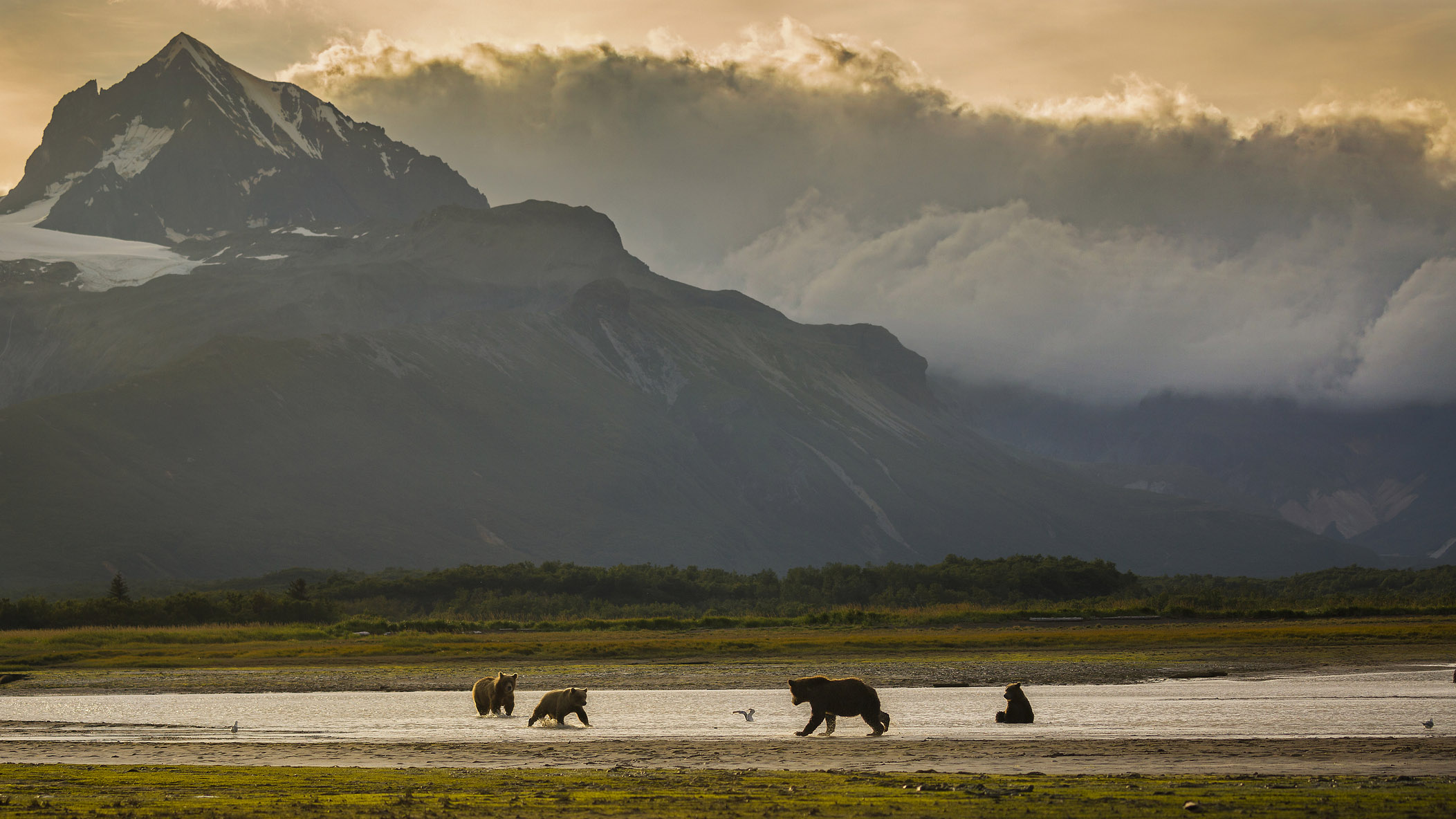
On average, between 2 to 5 people are killed by bear attacks in North America every year. So, while it’s rare, the unthinkable can happen. In the unlikely event of an attack, saving your skin (and the rest of you, too) hinges on having the best bear spray available along for the trip and the know-how to deploy it quickly, effectively, and accurately. Not only will doing so give you the ability to deter an attack, it will also provide the peace of mind you need to enjoy your hikes without fearfully scanning your surroundings with binoculars at every turn.
Here, we aim to impart this know-how with a series of step-by-step instructions on how to store, carry, and use bear spray. First up, however, is a short explanation of exactly what bear spray is and why you should be carrying it on your hikes in teddy territory.
How to use bear spray: a bit of background on bear deterrents
What is bear spray?
Bear sprays are aerosol deterrent sprays loaded with highly concentrated capsaicin and capsaicinoids similar to those found in over-the-counter pepper sprays used by civilians and law enforcement agencies. The only difference between the two lies in their potency. The average capsaicin content in civilian pepper sprays is around 0.4% to 0.5%, but in bear sprays ranges from 1.0% to 2.0%. As you might have guessed, the higher the concentration of capsaicin, the more potent the spray will be.
When deployed, bear sprays release a cloud of the capsaicin formula as a vapor. This temporarily incapacitates the bear by irritating its mucous membranes, eyes, mouth, and ears, giving you time to hightail it to safety.
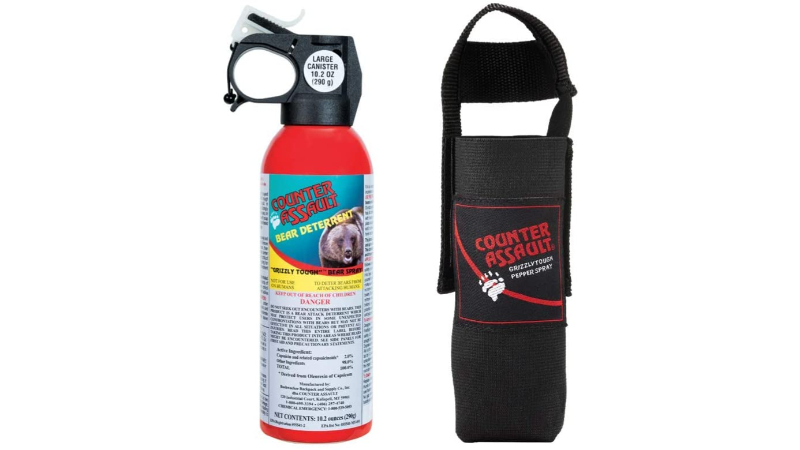
Are bear sprays effective?
Several studies have shown that bear sprays are highly effective in repelling attacks by different species of bears. The most notable of these was a study by Alaska’s U.S. Interagency Grizzly Bear Study Team, which found that bear sprays effectively deterred 92% of brown bear attacks and 90% of black bear attacks.
All the latest inspiration, tips and guides to help you plan your next Advnture!
Another study from Brigham Young University found bear sprays were more effective deterrents than firearms. This may be hard to believe, we know, but there are several reasons why bear sprays trump bullets. First of all, bear sprays emit a dense and diffuse fog, meaning you don’t have to be quite so accurate in order to hit your target. Given that your target will be a large, snarling mammal approaching at high speeds, this is something of a blessing for anyone with nerves made of anything other than the hardest steel. Secondly, an accurate shot is not all that’s required. According to National Geographic, firearms are effective deterrents in bear attacks in only 50% of cases, mainly because bringing a bear down requires multiple hits and using more powerful firearms than any hiker is likely to carry. Another study published in the Journal of Wildlife Management, moreover, revealed that the injury rates for those carrying firearms were the same whether the carrier used the firearm in the attack or not.
The bottom line? Although bear spray doesn’t offer a guarantee of coming out of a bear encounter unharmed, it’s still the most effective and reliable deterrent at your disposal – and it is, of course, far better than carrying nothing at all.
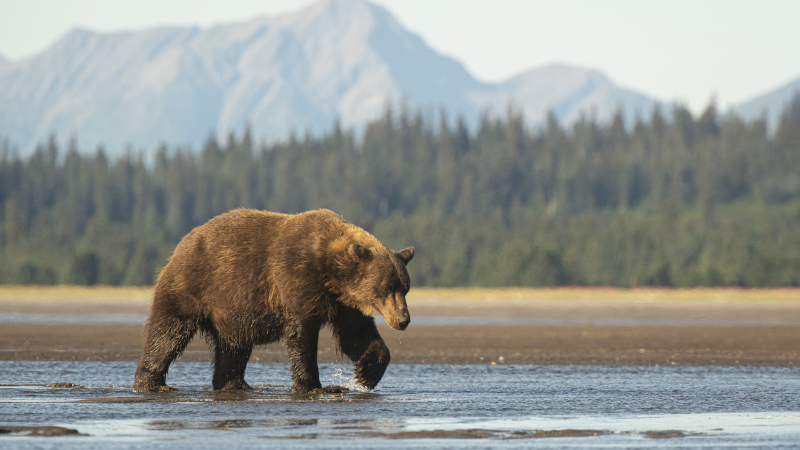
How to store bear spray
- First of all, because bear spray canisters can explode in high temperatures, be sure to store your spray in a cool location and out of direct sunlight either at home or in your vehicle.
- Store your spray in a secure, locking container. This is particularly important if you have kids or pets.
- The shelf life of bear sprays varies from product to product. Every type of spray will lose potency towards the end of this date, so it’s a good policy to make a point of renewing your spray annually. If not, take a note of the expiry date and swap it out for a new one with a month or two to spare.
- Before taking your bear spray out of storage and with you on a hike, make sure you check local or park regulations regarding the use of bear sprays. While in some national parks (Yosemite NP, for example) carrying bear spray is prohibited, in others (e.g. Yellowstone NP ) it is recommended.
How to carry bear spray
Before we explain how and when to deploy your spray, let’s first take a look at how to carry it so it will be ready to roll when need be.
- When hiking and around camp, keep your spray on your person and in a place where it can be accessed easily and quickly, ideally on a holster on your belt or your chest – if you do encounter a bear, it’s highly unlikely that you’ll have time to fish around in your daypack to find it.
- Make sure the safety clip is on to avoid accidental discharge.
- Take your spray inside your tent with you in the evening and store it in a place where it can be easily located without using a headlamp. Make sure you have the safety on and that it’s well clear of any sharp items (e.g. tent pegs, crampons, camping utensils for cooking and dining).
- Don’t be tempted to use your bear spray on your tent in the hope that it will deter bears before they get close. Doing this is actually only likely to attract bears to your campsite by giving them the scent of the pepper content of the spray – and even the best large tents, of course, are no match for bears
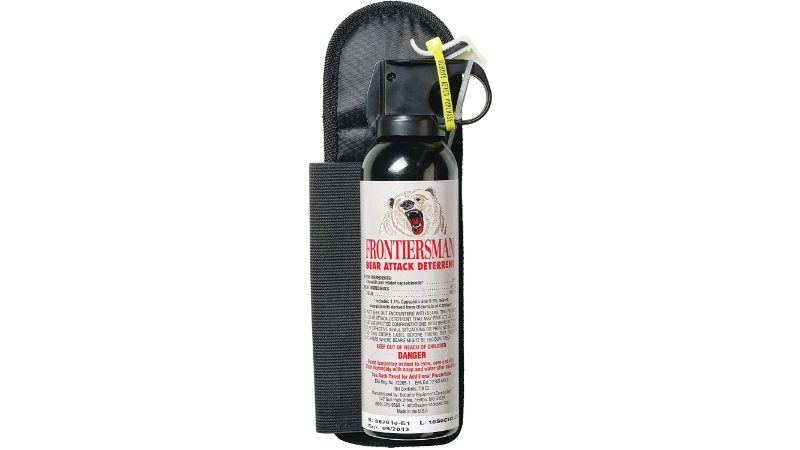
How to use bear spray: step-by-step instructions
So, what to do if you meet a bear in the wilderness?
- First, remember that using your spray should be a last resort. If you meet a bear in the wilds, first try to back away slowly while talking to the bear in a calm, loud, and consistent voice, and avoiding making eye contact. If the bear doesn’t approach or charge, continue backing away, make toward a safe place, and then alert park authorities. If it does…
- Remove your bear spray from the holster or belt and release the safety clip.
- If possible, take up a position whereby the bear is downwind to avoid the spray blowing back toward you when discharged.
- Hold the spray in front of you with two hands, one on the can and the other on the trigger.
- Wait until the bear is within ten yards (30 feet), aim slightly downward to allow for recoil, then discharge the full contents of the can.
- Spray in a zigzag pattern to put a cloud of spray between yourself and the bear. If the bear doesn’t stop, aim directly at the bear’s face.
- When the bear halts its charge or changes direction, leave the area promptly.
- Give yourself a pat on the back and be grateful that you took the time to learn how to use bear spray!
Former Advnture editor Kieran is a climber, mountaineer, and author who divides his time between the Italian Alps, the US, and his native Scotland.
He has climbed a handful of 6000ers in the Himalayas, 4000ers in the Alps, 14ers in the US, and loves nothing more than a good long-distance wander in the wilderness. He climbs when he should be writing, writes when he should be sleeping, has fun always.
Kieran is the author of 'Climbing the Walls', an exploration of the mental health benefits of climbing, mountaineering, and the great outdoors.
